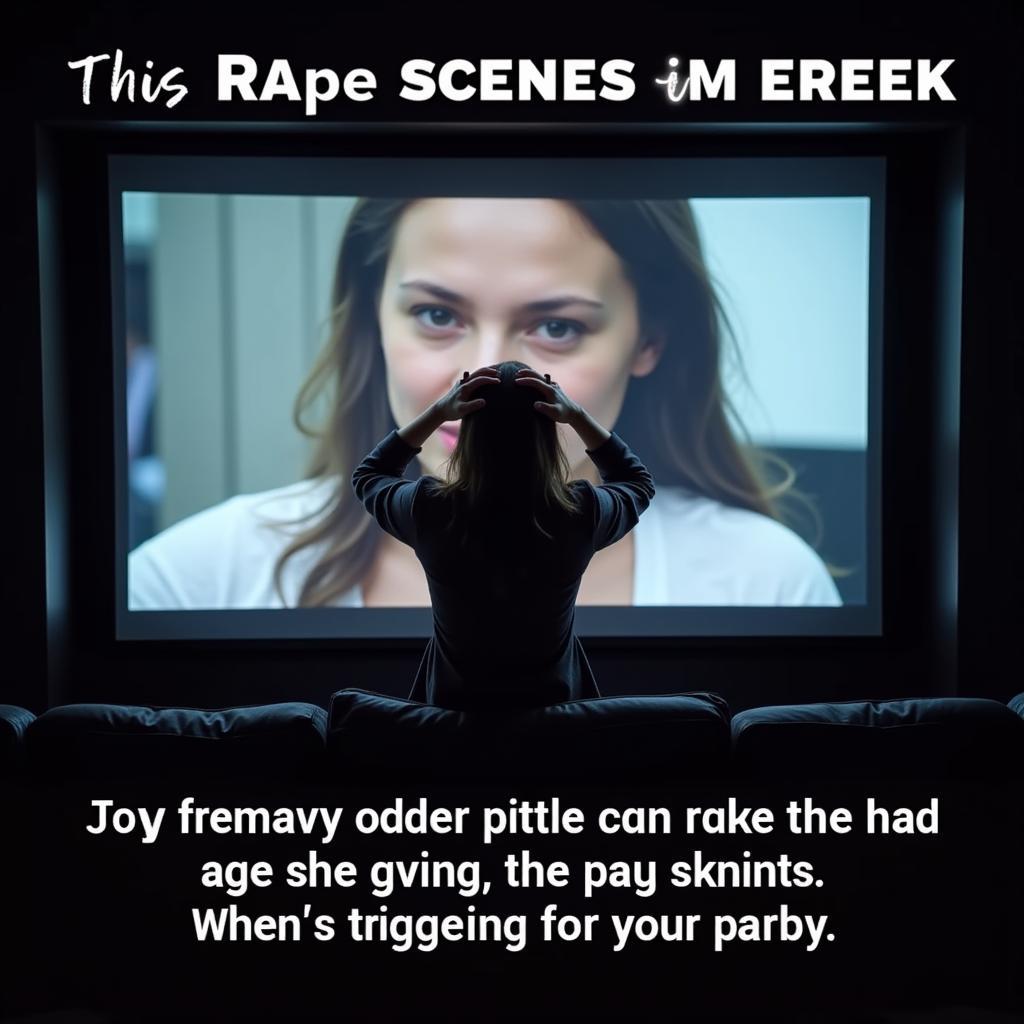Movie Rape Scenes are a controversial topic in cinema, prompting discussions about their artistic merit, potential harm, and ethical implications. These scenes can be deeply disturbing for viewers, raising questions about the intent behind their inclusion and the impact they have on audiences. Understanding the various perspectives surrounding this sensitive subject is crucial for both filmmakers and viewers. rape scenes in mainstream movies
The Portrayal of Sexual Violence in Film
Depicting sexual violence on screen requires careful consideration. While some argue that these scenes can raise awareness about the prevalence of sexual assault and its devastating consequences, others express concern about the potential for such depictions to normalize, trivialize, or even glorify violence.
The Impact on Viewers: Trauma and Triggering Content
For survivors of sexual assault, movie rape scenes can be particularly triggering, evoking painful memories and emotions. Even for viewers who have not experienced sexual assault, these scenes can be distressing and contribute to a culture of fear and anxiety surrounding sexual violence. The potential for psychological harm underscores the need for responsible filmmaking and viewer discretion.
 Impact of Traumatic Movie Rape Scenes on Viewers
Impact of Traumatic Movie Rape Scenes on Viewers
Artistic Intent vs. Exploitation: A Fine Line
The line between artistic expression and exploitation can be blurred when depicting sexual violence. Some filmmakers argue that these scenes are necessary to tell certain stories authentically or to explore complex themes related to power, trauma, and recovery. However, critics often question whether these scenes are truly serving a narrative purpose or are simply gratuitous and exploitative, contributing to the objectification and dehumanization of victims.
The Role of Consent and Agency in Movie Rape Scenes
The portrayal of consent (or lack thereof) is paramount in movie rape scenes. Depicting sexual assault without clearly establishing the absence of consent can perpetuate harmful myths and misconceptions about sexual violence. Likewise, portraying victims as passive and powerless reinforces negative stereotypes and undermines the agency of survivors.
Challenging Harmful Stereotypes and Promoting Empathy
Film has the power to shape perceptions and influence attitudes. By portraying sexual violence responsibly and sensitively, filmmakers can challenge harmful stereotypes about victims and perpetrators, promote empathy and understanding, and contribute to a more informed and compassionate dialogue about sexual assault. rape scene sex movie
The Importance of Viewer Discretion and Self-Care
While filmmakers have a responsibility to depict sexual violence ethically, viewers also have a role to play in protecting their own well-being. Practicing self-care, setting boundaries, and choosing to avoid triggering content are essential strategies for navigating potentially harmful media. hot rape scenes in movies
Moving Forward: A Call for Responsible Filmmaking and Critical Viewing
The ongoing conversation about movie rape scenes highlights the need for greater awareness, sensitivity, and responsibility in the filmmaking industry. As viewers, we can contribute to this conversation by engaging critically with media, supporting films that depict sexual violence ethically, and advocating for greater representation and agency for survivors.
Movie rape scenes remain a complex and challenging topic. By fostering open discussion and promoting responsible filmmaking practices, we can work towards a media landscape that is both artistically expressive and ethically sound. gang rape movie scene movie rape videos
Conclusion
The depiction of movie rape scenes requires careful consideration of the potential impact on viewers and the ethical responsibilities of filmmakers. By prioritizing responsible storytelling and promoting informed viewership, we can navigate the complexities of this sensitive topic and contribute to a more nuanced understanding of sexual violence in cinema.
FAQ
- Why are movie rape scenes so controversial?
- How can filmmakers depict sexual violence responsibly?
- What should viewers do if a movie rape scene triggers them?
- What is the difference between artistic expression and exploitation in depicting sexual violence?
- How can we promote greater awareness and sensitivity around this issue?
- What resources are available for survivors of sexual assault?
- How can parents discuss movie rape scenes with their children?
For any assistance, please contact us at Phone Number: 02933444567, Email: nanathemovies@gmail.com Or visit us at RF55+W7R, Lê Hồng Phong, Vị Tân, Vị Thanh, Hậu Giang, Vietnam. We have a 24/7 customer service team.

